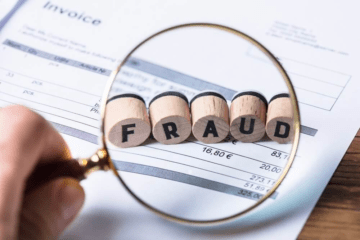
This article is written by Piyush Gupta of 1st Semester of Institute of Law, Nirma University, Ahmedabad Gujarat, an intern under Legal Vidhiya.
ABSTRACT
A contract is a legally binding agreement, whether spoken or written, that obligates two or more parties to fulfil specific rights and responsibilities. As per Section 2(h) of the Indian Contract Act, 1872, a contract is a legally enforceable agreement. In the business sector, contracts have become an essential part of transactions between buyers and sellers. Even when there is a meeting of minds between both parties exchanging goods or services, it is a type of contract. In the past, the law of contract in the business sector was typically governed by principles of fairness, good faith, and mutual consent. However, with the evolution of contract law, the concepts of guarantee, indemnity, and bailment have been explicitly addressed. These concepts refer to the principle of debt and credit in contractual agreements, including borrowing and lending in ancient times, which are crucial in understanding contract law. Therefore, understanding the debtor and creditor, their performance, and obligations is essential when it comes to contract law.
KEYWORDS:
Debt, Principal Debtor, Credit, Creditor, Contract Law, Rights, Duties
INTRODUCTION
Debt is the money borrowed by one party from another to serve a financial need that otherwise cannot be met outright.[i] It simply refers to the borrowing or lending resources, mainly financial resources with a condition to repay them within a specific period and at an agreed interest rate. The party who borrows or is liable to repay the amount taken are called the Principal Debtor and the party who has given the amount to borrow and stands to receive it back is called a Creditor. The relationship between the debtor and creditor generally arises from the debt agreement or the contract which is legally binding on both parties. The contract generally defines the terms of the debt, including the amount, interest, repayment schedule, and consequences of non-payment. The involvement of debtor and creditor can also be seen in the contract of guarantee under contract law; hence they have a significant role in the contract law. Thus, their rights, duties, obligations and legal remedies for the enforcement of the contracts are governed under the law of contract.
As we understand the importance of the role of both parties in a debtor-creditor relationship, we will discuss the various rights and duties of both parties in the article.
RIGHTS & DUTIES
Both rights and duties are fundamental components of every legal system. Rights place authority upon individuals, whereas duties establish a structure for the conscientious implementation of those rights, thereby promoting social order and regard for others. Legal rights are enforceable claims recognized and protected by the law. On the other hand, legal duties are obligations to act or refrain from acting in a certain way. They may arise from statutes, common law, or contracts. The purpose of duties is to protect others’ rights and maintain social order.
Rights and Duties exist in a reciprocal relationship. The enjoyment of one’s rights is often dependent on fulfilling corresponding duties towards others. For example, the parties have the right to form a legally binding contract with the duty to perform and fulfil their contractual obligations.
As we know principal debtors are those parties who borrow or owe money from another party to fulfil their needs and they are under the obligation to pay the amount back within a specific period of time. In contract law, debtors are also called promisers and have certain rights and duties to perform under the terms and conditions of the contract agreed upon. They were further discussing the rights and duties of the principal debtor accordingly.
The rights of the principal debtor are as follows:
- Right to fair debt collection practice
One important consumer protection provision is the right to fair debt collection practices, which guarantees that debtors get respectful treatment and are shielded from coercive or misleading debt collection tactics.
- Right to set aside contract or agreement induced by any unfair means
The principal debtor has the right to consider any contract voidable from their side if it is caused by undue influence, fraud, without free consent, misrepresentation or by any fair means.
- Right to notice of breach
A notice of breach may be given to the principal debtor if the other party, who is the creditor, does not fulfil their obligations as stipulated in the contract. They will have the option to either respond correctly or rectify the breach as a result of this change.
- Right to perform a specific performance
Specific performance is a remedy in which a court issues an order requiring a party to carry out a particular act, thereby bringing about the contractual agreement’s fulfilment. Generally, it occurs after one party has violated the contract or failed to fully comprehend its obligations. A creditor may violate a contractual obligation or engage in malfeasance, such as suggesting increased or different debt levels or reducing or tampering with the time durations, in which case the debtor may assert this right.
- Right to terminate the contract
The principal debtor has the right to terminate the contract under certain conditions, such as if the creditor breaches a material term, or if the circumstances surrounding the contract change significantly.
- Right to set off
The right to setoff is a debtor’s right to reduce the amount owed to a creditor by offsetting it with the amount owed to the debtor. To put it simply, the debtor can offset the amount owing against the amount owed to them if the creditor owes them money from a different transaction or account. This can be the debtor’s defence for not making payments.
The duties of the Principal Debtor are as follows:
- Repayment Obligation
The principal debtor has the primary obligation meaning that they are directly accountable for the repayment of the debt they have taken. This obligation usually arises from the contractual agreement between the debtor and the creditor. Generally, the principal debtor bears the duty to repay the debt but in some circumstances for example, in the joint liability, all parties who are involved are equally responsible for repayment, regardless of who borrowed the money initially.
- Compliance with Agreed terms
A debtor owes a legal duty to comply with the terms agreed of a debt obligation. This means they must fulfil their side of the agreement according to the stipulated conditions. Failure to do so can lead to breach of contract, financial penalties and damage to credit score.
- Maintaining Collateral
Under a secured loan arrangement, the debtor is obligated to keep the collateral in good condition and provide it to the lender as security for the loan. In the case that the debtor fails on the loan, this guarantees the collateral will hold its value and be easily liquidated by the lender.
- Duty to notify of Anticipatory Breach
Under contract law, it is the duty of the debtor to notify the creditor as soon as feasible if he anticipates that he may not be able to fulfil all of his obligations within the time frame specified in the agreement.
- Duty to Mitigate Damage
According to contract law, the debtor is required to minimize any losses that result from their violation. This indicates that in the event that the debtor is unable to perform as per the terms of the agreement, they must take reasonable action to reduce the damages incurred by the creditor.
The rights of the creditor are:
- Right to receive payment
It is one of the fundamental rights of the creditor to receive the payment back in the debtor-creditor relationship. Right to receive payment ensures getting the full amount owed by the debtor, including principal, interest, fees and late payment penalties through contracts agreed upon.
- Right to Legal Recourse
One of the main rights of creditors in any financial arrangement is the ability to take legal action. It gives them the power to take legal action against a debtor who doesn’t carry out their end of the bargain when it comes to the terms of the loan. By doing this, creditors are guaranteed the ability to safeguard their assets and collect the money owed to them.
- Right to enforce security or collateral
In a debt-creditor relationship, the right to security or collateral is a right that creditors utilize to reduce their risk, improve negotiation leverage and for faster debt collection. In the event of default, it enables them to obtain repayment by seizing ownership of particular assets (referred to as collateral) owned by the debtor.
- Right to claim damage
This right acts as a strong defence against damages imposed by the debtor’s carelessness or breach of contract. It enables the creditor to pursue damages for extra costs incurred, chances lost, and psychological suffering brought on by the debtor’s inability to fulfil their responsibilities. It protects the rightful rights of the creditor by making sure that the innocent party is not the only one who bears the burden of any loss resulting from the debtor’s breach.
- Right to a special performance
When the monetary compensation is insufficient, the creditors have the right to demand specified performance. To protect the creditor from suffering injury as a result of the debtor’s actions, this legal remedy forces the promiser or the debtor to fulfil their contractual obligations as both parties have agreed upon.
- Right to mitigate damage.
According to contract law, the debtor is required to minimize any losses that result from their violation. This indicates that in the event that the debtor is unable to perform as per the terms of the agreement, they must take reasonable action to reduce the damages incurred by the creditor.
The duties of the Creditor are as follows:
- Fair and honest practice
Although obtaining repayment is a valid interest for any creditor, it shouldn’t take precedence over the essential duty to handle debtors with dignity and fairness. Creditors may build a better moral and long-lasting financial system by adopting honest and fair business practices. This will build trust and advance everyone’s financial well-being.
- Consideration of Debtor’s Circumstances.
Considering the debtor’s circumstances in credit practices goes beyond simply fulfilling a moral obligation. For both creditors and debtors, it can result in higher payback rates, less harm, and a more stable financial environment. Creditors may improve the lives of struggling people by promoting cooperation and understanding, which will lead to a more fair and responsible financial system.
- Charging fair interest only
Creditors are not legally required to charge “fair interest only” everywhere. Nonetheless, fair interest rates are encouraged by moral considerations, market laws, and prudent lending practices.
- Performance of Anticipatory Breach
If the creditor takes any activities that could result in a breach of the contract, they should promptly notify the debtor. By doing this, you may limit loss for both parties and ensure that the contract does not terminate suddenly.
- Providing Clear Documentation
One essential component of responsible lending and financial transactions is the creditor’s obligation to produce unambiguous documentation. It guarantees that all parties are aware of the terms and conditions of the contract, reduces misunderstandings and disagreements, and safeguards the interests of the lender and the borrower.
Creditors can contribute to a more open, equitable, and effective financial ecosystem for all parties involved by realizing and carrying out their obligation to produce unambiguous documentation.
CONCLUSION
After dealing with the rights and duties of both the principal debtor and creditor, it can be concluded that the relationship between the parties is an important aspect of the law of contract. It forms the backbone of many financial transactions from personal loans to international trade. So, it becomes very important to understand the rights and duties of each party for a smooth, secure, and ethical flow of resources.
In the end, a principal debtor and creditor have a symbiotic rather than competitive relationship. A system based on mutual respect, unambiguous expectations, and a shared dedication to justice and accountability is advantageous to both parties. By carrying out their assigned responsibilities, individuals may confidently negotiate the complex credit dance and help create a more equitable and stable financial environment for everybody.
REFERENCES
- Debt, Corporate Finance Institute, https://corporatefinanceinstitute.com/resources/commercial-lending/debt/#:~:text=Debt%20is%20the%20money%20borrowed%20by%20one%20party%20from%20another%20to%20serve%20a%20financial%20need%20that%20otherwise%20cannot%20be%20met%20outright (last visited Jan. 6, 2024).
- Arthur Corbin, Rights and Duties, (May 20, 2011), https://openyls.law.yale.edu/bitstream/handle/20.500.13051/2295/Rights_and_Duties.pdf. (last day visited Jan. 6, 2024)
- Hart, H. L. A. (1953). The concept of law. Clarendon Press.
- Corbin, A.L., 1923. Rights and duties. Yale LJ, 33
- Singh, Avatar. (2018). Law of Contract. Eastern Book Company
- The Indian Contract Act, 1872
Disclaimer: The materials provided herein are intended solely for informational purposes. Accessing or using the site or the materials does not establish an attorney-client relationship. The information presented on this site is not to be construed as legal or professional advice, and it should not be relied upon for such purposes or used as a substitute for advice from a licensed attorney in your state. Additionally, the viewpoint presented by the author is of a personal nature.




0 Comments